Katherine Grainger: Transition from rowing 'the biggest challenge'
- Published
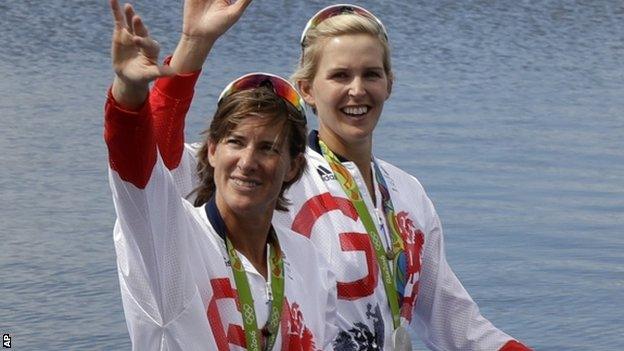
Grainger is likely to wave goodbye to competitive rowing after her silver medal with Vicky Thornley in Rio
Katherine Grainger admits she faces the biggest challenge an athlete confronts as she contemplates life after rowing.
The 40-year-old rower became Britain's most decorated female Olympian when she won a fifth medal - a fourth silver to go with her 2012 gold - in Rio.
Last Thursday's double sculls race with Vicky Thornley will almost certainly be the last of a 20-year senior career.
"I think people who know me wouldn't expect me to do anything beyond this point," she told BBC Scotland.
"London was an incredible end point in my career but for personal reasons I wanted to come back and have another go.
"It has been even better than most people expected, including myself, but there is a limit to my abilities."
While she continues to reflect on a "crazy day" and "a medal most people weren't expecting" after the "selection ordeal" that preceded it, Grainger is already experiencing the emotional comedown of her latest achievement.
"The day after is always a bit odd," she told BBC Radio Scotland's Sunday Sportsound. "There is nothing left to be done. We had this driving focus for a long time, so it is a very empty feeling.
"So you do things like your laundry and menial bits and pieces. But now we can kick back and watch other Team GB athletes for the rest of the Games.
"It is an emotional up and down, but the overwhelming thing is I am very proud and very happy."
Rio Olympics 2016: Katherine Grainger & Vicky Thornley's postcard
Longer term, though, after a week of watching, supporting and celebrating with other Team GB members, Grainger admits she faces a "fearful but thrilling" future beyond competitive sport.
The Scot took two years out after winning gold in London at her fourth attempt, studying for a Phd and working with the BBC on its rowing coverage at the 2014 Commonwealth Games amongst other activities.
But having shown "the mental resolve and resilience" to deal with the questions asked of her in the two years since her comeback, she is now contemplating issues of a similarly taxing nature.
"The biggest challenge an athlete can have is that transition period where you go from an incredibly intense, challenging and exciting world of sport where you have a really obvious focus and a very clear goal at least every four years, if not every year within that, to suddenly stepping into a world where you don't really know the rules, where your strengths are, what you are going to be good at," she explained.
"You are at an age where everyone else is established in jobs and careers and you are starting afresh. It feels almost as if you are leaving school or university again, and yet you are trying to find something you can be good at when you have just been one of the best in the world at something.
Most medals by British female Olympians | |
|---|---|
5 | Katherine Grainger (1 gold, 4 silver) |
4 | Rebecca Adlington (2 gold, 2 bronze) |
3 | Laura Trott (3 gold), Victoria Pendleton (2 gold, 1 silver), Charlotte Dujardin (2 gold, 1 silver), Kelly Holmes (2 gold, 1 bronze), Mary Rand (1 gold, 1 silver, 1 bronze) |
"For me the exciting thing is the opportunities it opens up for you. An athlete's world is very limited, by the nature of what you do. So the world opens up again but the scary side is 'where do you begin?'
"How do you replace the passion and love I have had for rowing for so long? It is a bit of an unknown. Partly it is thrilling, and partly it is fearful. But that combination is probably a healthy one."
For the next week until the Games end though, Grainger will try to get used to that title of 'Britain's most decorated female Olympian'.
"It doesn't exactly roll off the tongue does it?" she joked. "The medal is sinking in and I understand that now but having the historical side on top takes a bit longer to get used to.
"It is a huge title and I am very aware that it will be bettered and beaten but for the short time I have it, I am very proud of it.
"I don't think it is one you think you will ever get for yourself but at some point when we fly home I will probably sit back with my family and have a quiet moment to acknowledge the career I have had."
- Published12 August 2016
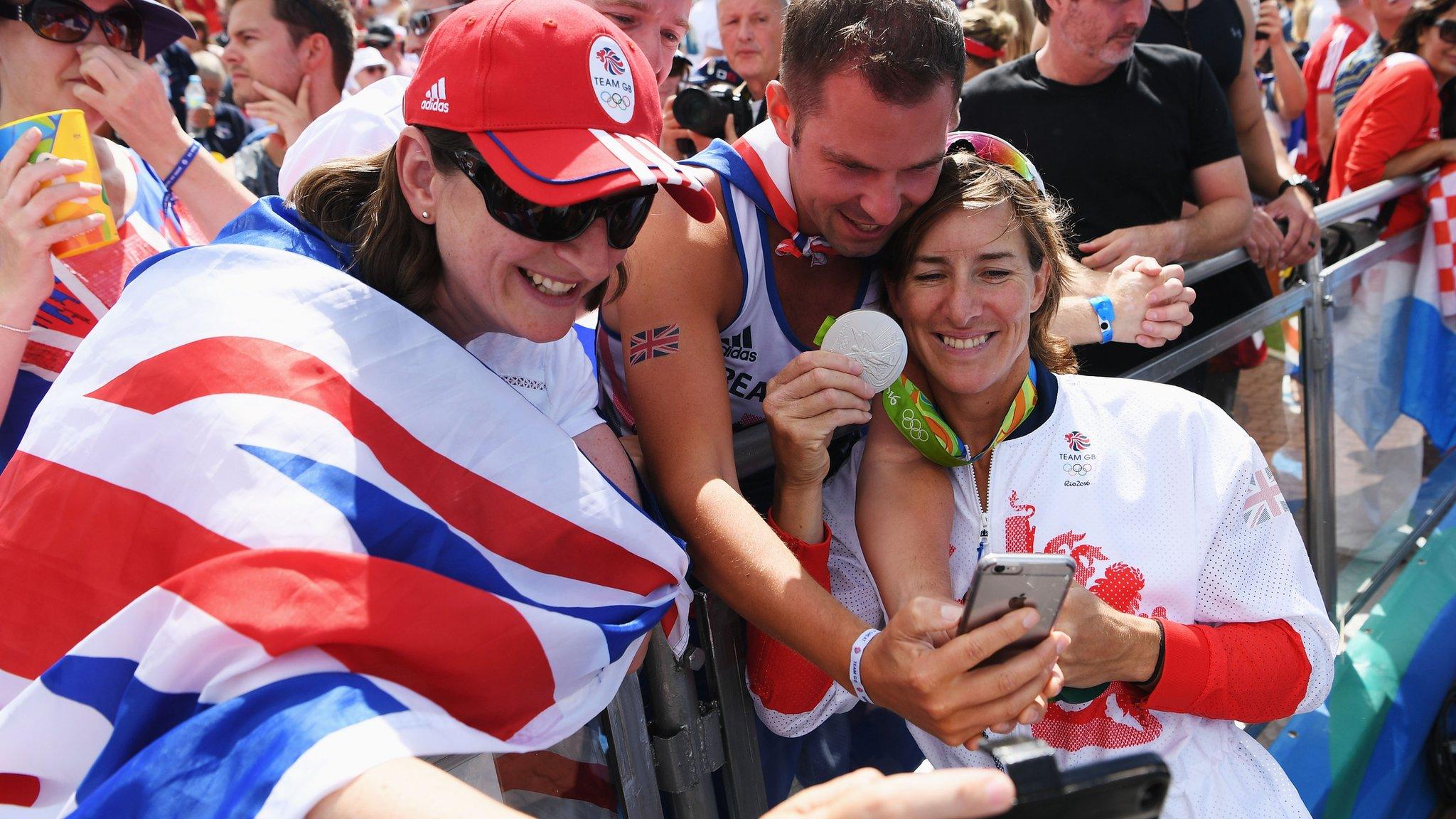
- Published11 August 2016
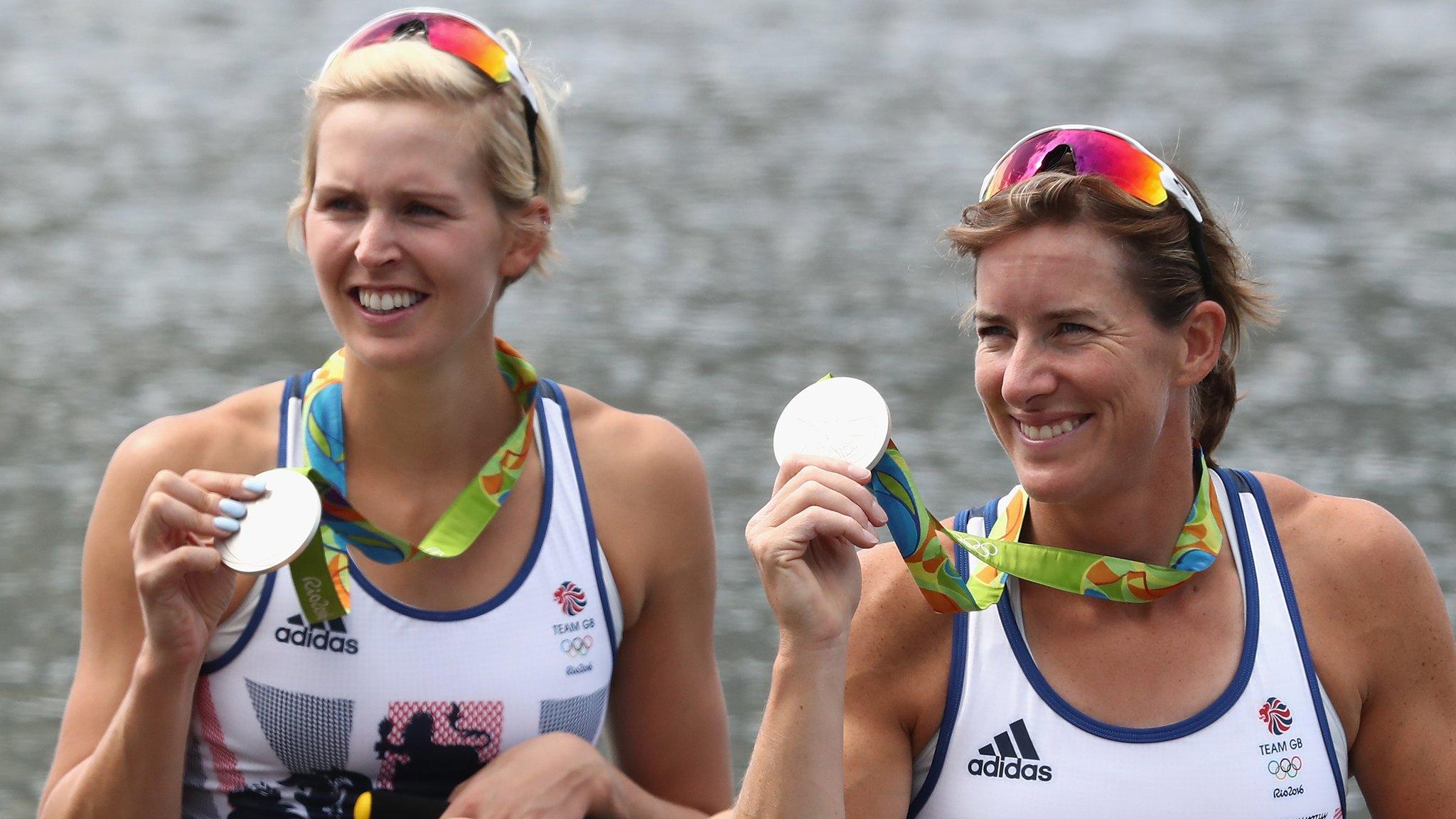
- Published2 August 2016
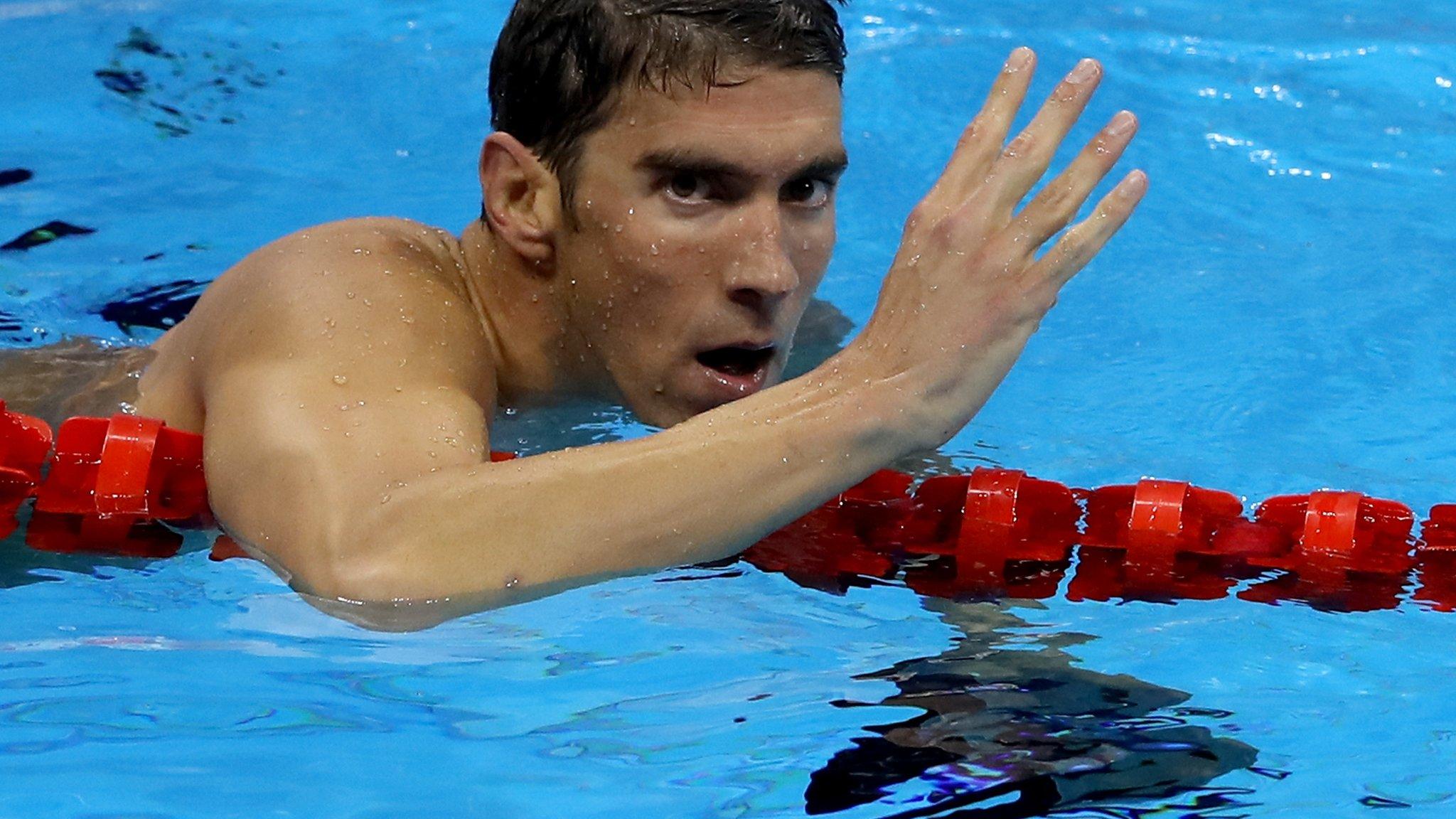
- Published11 August 2016
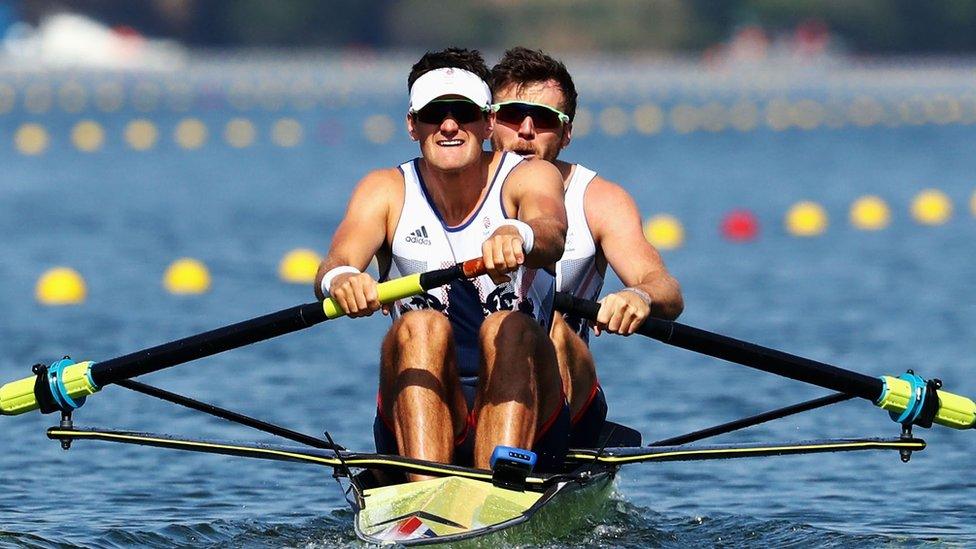
- Published11 August 2016
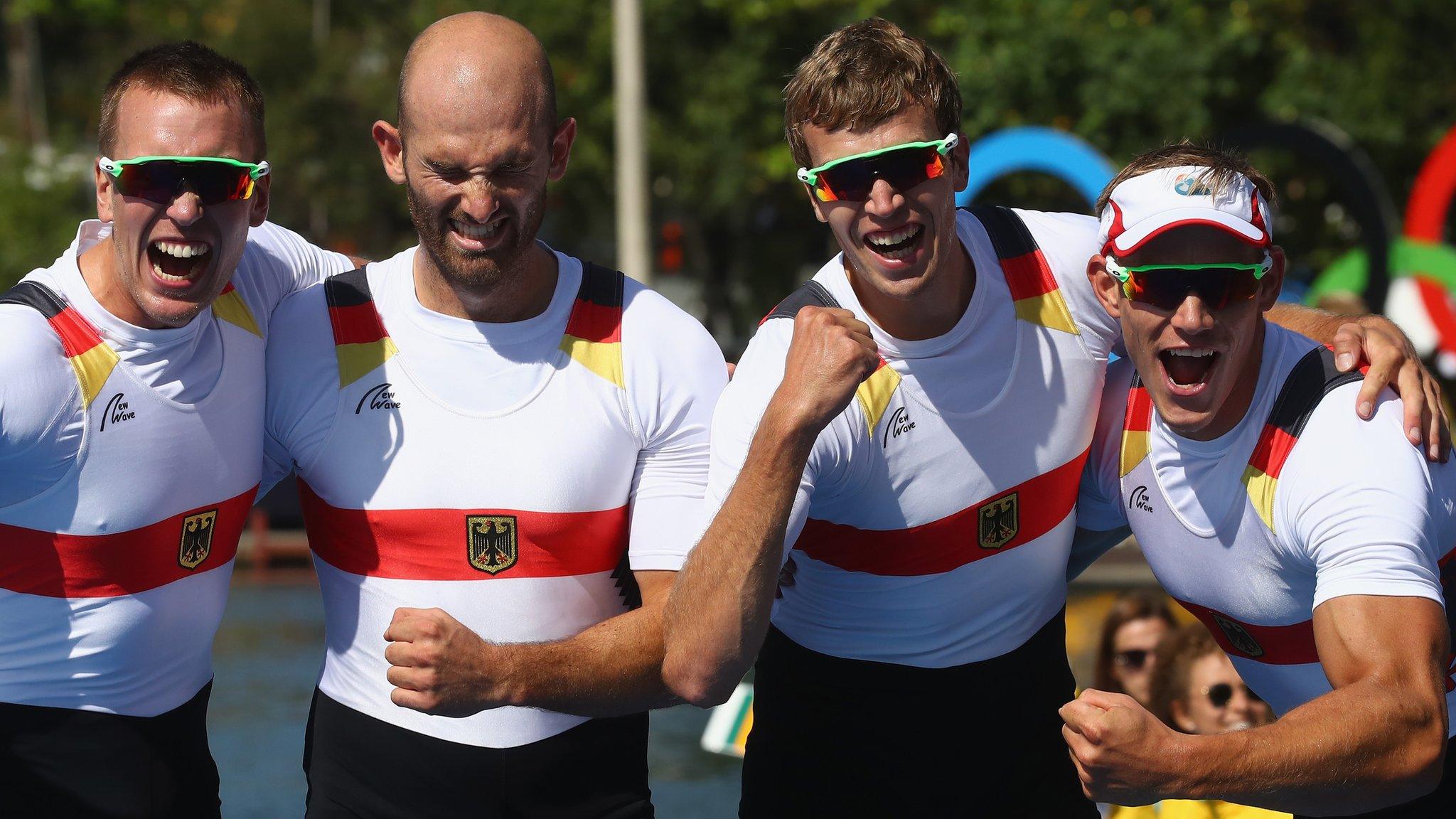
- Published18 August 2016

- Published3 August 2016

- Published19 July 2016
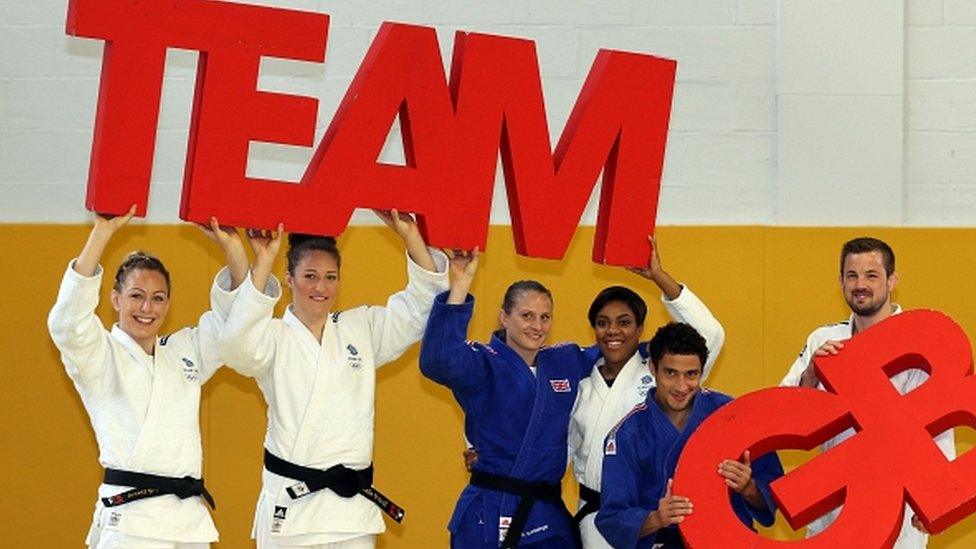
- Published3 August 2016
